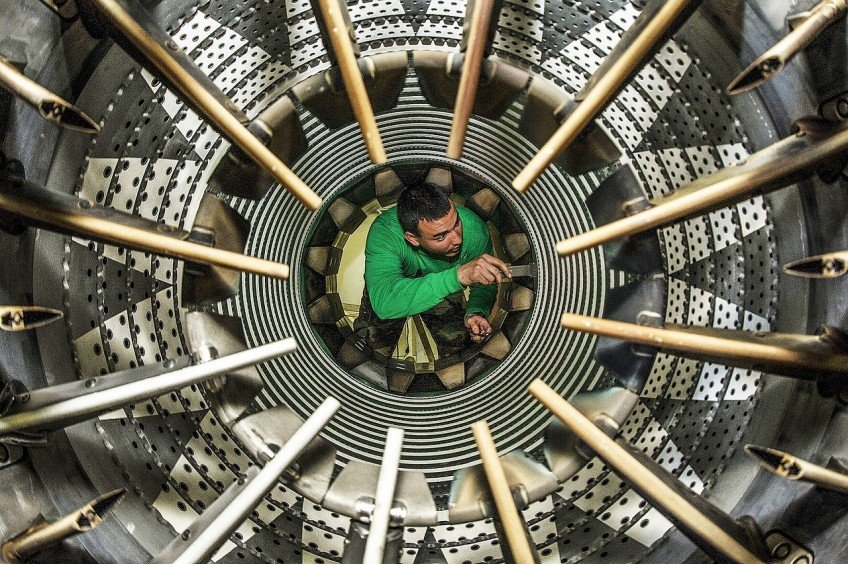Aviation engineering (also known as aeronautical engineering) encompasses the design, development and assembly of aircraft. From that statement alone you can sense just how big an industry this is and why, it attracts people with different skillsets to choose it for their careers.
The fundamental objective of any aviation engineer whether 'A', 'B1' or 'B2' licensed, is to improve aircraft performance and flight safety and it takes different types of engineers; mechanical, electrical, software, etc., all working together to ensure success in both areas. For example; an electrical engineer might be developing a complex navigational system, while a software engineer would be developing the software to use with that system.
If this is a career you're considering, then you're probably already looking at courses you could take or apprentices you could apply for. To offer you inspiration if you're wondering where all the studying could take you, we put three questions to experienced aviation engineer John Dunn, managing director of Rated Recruitment. Here he shares his story of how he got into aviation engineering and gives his advice on how you can enter this competitive industry.
1. What path did you take to become a licensed engineer?
My father was a helicopter engineer and pilot and as a child I loved spending time at Barton Airfield in Manchester with him. Unfortunately at that time, there was no money in light aviation and as a self-employed 'one man band' so to speak, my father didn't have the time or money to train me as an engineer. So the best path for me to take, was to apply for an apprenticeship with Monarch Airlines, which I was lucky to get in. Over 600 applicants were whittled down to 12 and I was one of the very few who hadn't previously attended an aviation college course like the one ran by Macclesfield college.
As an apprentice, part of the training is classroom based so I passed some of the Part 66 modules you need to become a licensed aircraft engineer, during my apprenticeship. But as a young lad, the last thing I wanted to do is study and looking back I should have spent more time with my head in the books instead of the pub! It was only after my apprenticeship that I decided to knuckle down and pass the last few modules I needed.
2. What did you gain from your years working at Monarch?
I was fortunate to learn from and work alongside some very knowledgeable engineers based at Monarch Manchester. Some still work there and sadly, some are no longer with us.
I was line-based for the last eight years of my employment with Monarch which meant a lot of the maintenance was carried out outside on the ramp, in all weather conditions, both day and night. I was also given opportunities to work on various oversea detachments. Two of the most memorable were the HADJ operation where I was based in Palembang, South Sumatra and the Maldives where I was based on a resort island and had to get a speedboat to work every morning to the airport island!
I am also lucky to have gained so many different aircraft type courses at Monarch. While I worked there, Monarch Engineering looked after ten different aircraft types at Manchester Airport and overseas. When I left in 2014 I was very fortunate to start my contracting life with eight different aircraft types on my license with some of the bigger types also having added engine types which are an added bonus when contracting.
3. What advice would you give to anyone who wants to become an aviation engineer?
In my opinion apprenticeships and adult traineeships are the best way to become an aircraft engineer in the civilian sector. Apply to known, aircraft engineering companies through their websites as they will advertise open positions. A good friend of mine applied for the apprenticeship at Monarch in 2015 and was told he was too old, he then re-applied as an adult trainee and got in. An apprenticeship will usually take you four years and an adult traineeship usually takes you three years to qualify as an aircraft mechanic. I have heard of twelve month courses and even a couple of one month courses being run to become an aircraft mechanic but I don't recommend either of these as they hold no quality or value.
Whatever route you decide to take to get into aviation engineering; study hard and stick at it because it can lead to some amazing opportunities. Good luck!


